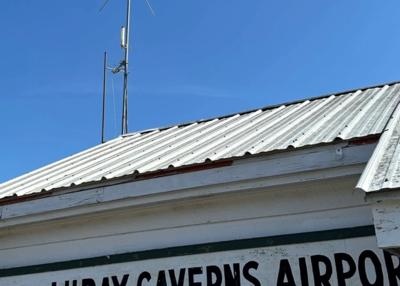Sun, Sep 03, 2023
Receiver Network Enables Higher Resolution for ADS-B Tracking
The Civil Air Patrol’s Virginia Wing has helped uAvionix test out a DO-260B compliant dual band ADS-B receiver network to supplement FAA sensor data, bearing out the new systems’ benefits under the National Radar Analysis Team mission to shorten rescue times.

Volunteers all over Virginia state have helped to find and assess receiver sites to install small, lightweight “Flightstation” ADS-B receivers designed to pick up and relay transponder data from nearby aircraft. The network helps increase resolution at lower altitudes, greatly enhancing the quality of positional data for low-flying general aviation aircraft. Should the worst come to pass, that data becomes vital as the last known position for an aircraft - the more accurate the information, the smaller the search area, therefore the better the health outcomes for those injured in an off-airport landing.
The system, apparently operating as “FlightLine”, consists of “several ATC grade ADS-B receivers with overlapping coverage, allowing for validation of transmitted ADS-B data and pinpoint multilaterated positions.” That helps cover the gaps in traditional ADS-B and radar coverage, partly caused by the dearth of the 978 Mhz monitoring throughout the USA. The newly deployed network means that Virginia is the “first State in the US to have 100% coverage down to 500 ft of altitude”, with more to come.
“NRAT has been working several years to test small ADSB receivers to place at locations with limited FAA coverage”, said Lt Col Mark Young, Commander of NRAT. “The availability of these new receivers, built to RTCA aviation certification standards, and it’s subsequent real time data from FlightLine data available to CAP is a significant advancement for NRAT. Real time data at lower altitudes significantly improves NRAT’s ability to provide a fast and accurate location of missing aircraft that can be used to support the Emergency Services Search & Rescue mission and will result in lives saved.”
“uAvionix is proud to work together with CAP to improve low altitude data availability for this important public service”, said Christian Ramsey, Managing Director of uAvionix. “The introduction of ADS-B has resulted in a significant improvement of General Aviation safety, expanding on the FAA coverage at lower altitude and for UAT transponders typically carried by General Aviation will further enhance the tools used in safety of life activities such as CAP‘s Emergency Services mission.”
More News
Aero Linx: Transport Canada We are a federal institution, leading the Transport Canada portfolio and working with our partners. Transport Canada is responsible for transportation p>[...]
Gross Navigation Error (GNE) A lateral deviation from a cleared track, normally in excess of 25 Nautical Miles (NM). More stringent standards (for example, 10NM in some parts of th>[...]
From AirVenture 2017 (YouTube Edition): Flight-Proven Booster On Display At AirVenture… EAA AirVenture Oshkosh is known primarily as a celebration of experimental and amateu>[...]
Aircraft Parachute System (CAPS) Was Deployed About 293 Ft Above Ground Level, Which Was Too Low To Allow For Full Deployment Of The Parachute System Analysis: The day before the a>[...]
Also: 48th Annual Air Race Classic, Hot Air Balloon Fire, FAA v Banning 100LL, Complete Remote Pilot The news Piper PA-18 Super Cub owners have been waiting for has finally arrived>[...]
 ANN's Daily Aero-Linx (06.29.25)
ANN's Daily Aero-Linx (06.29.25) ANN's Daily Aero-Term (06.29.25): Gross Navigation Error (GNE)
ANN's Daily Aero-Term (06.29.25): Gross Navigation Error (GNE) Classic Aero-TV: Anticipating Futurespace - Blue Origin Visits Airventure 2017
Classic Aero-TV: Anticipating Futurespace - Blue Origin Visits Airventure 2017 NTSB Final Report: Cirrus SR22
NTSB Final Report: Cirrus SR22 Airborne Affordable Flyers 06.26.25: PA18 Upgrades, Delta Force, Rhinebeck
Airborne Affordable Flyers 06.26.25: PA18 Upgrades, Delta Force, Rhinebeck



